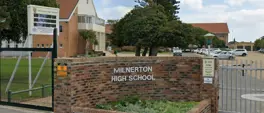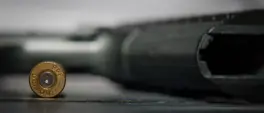Inside the brutal Rhino horn trade: Derek Lewitton's story
Jane Dutton
16 October 2025 | 17:41South Africa now stands at a crossroads. The stockpiles could save rhinos or serve as a pipeline for corruption.
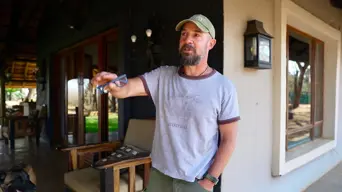
Derek Lewitton, owner of Black Rock Rhino Reserve in Limpopo. Photo: Katlego Jiyane
The global black market for rhino horn is worth billions, built on poverty at the bottom, greed at the top and violence in between. It is one of the world’s most entrenched illegal trades.
Derek Lewitton, owner of Black Rock Rhino Reserve in Limpopo, was caught in the middle. On 22 December 2023, he tells us, police raided his farm, accusing him of holding illegal horn, rhino carcasses, and unlicensed firearms.
These were the same officers he alleges he once asked to help him fight poaching cartels. His wife endured a 19-hour armed standoff in their home, their children watched in terror, and Lewitton was held in custody for three weeks.
While he sat in prison - with up to 19 inmates in a 5×6m room - and later fought to clear his name, he claims 39 rhinos were poached from his reserve and another 60 vanished. He further alleges that aerial survey results confirm this.
His Gauteng home was ransacked three times and he says his family received threats of rape and murder. Lewitton maintains that the massive costs of caring for and protecting rhinos, coupled with being unable to sell horn, have decimated his wealth.
The police have since approached Lewitton’s wife seeking to interview her. We have listened to a phone call between Lewitton and the police in which they refused to explain why they wanted to question her. At the time of writing, Lewitton told us that his wife and children have gone into hiding.
In the end, the Namakgale Magistrate’s Court withdrew all charges, with the prosecution confirming there was no evidence to support them.
Soon after, John Hume - once the world’s largest private rhino breeder - was also arrested, accused of leading a horn-smuggling syndicate. He was charged with allegedly smuggling 964 rhino horns, valued at more than R250 million (approx $14 million), through a fraudulent permit scheme. Hume responded by saying he had “nothing to hide,” that he had cooperated with investigators for years, and denied any role in the black market.
The National Prosecuting Authority insists Lewitton’s case is not closed. NPA spokesperson Mashudu Malabi said the charges were only “provisionally withdrawn” and could be reinstated once police “finalise investigations.”
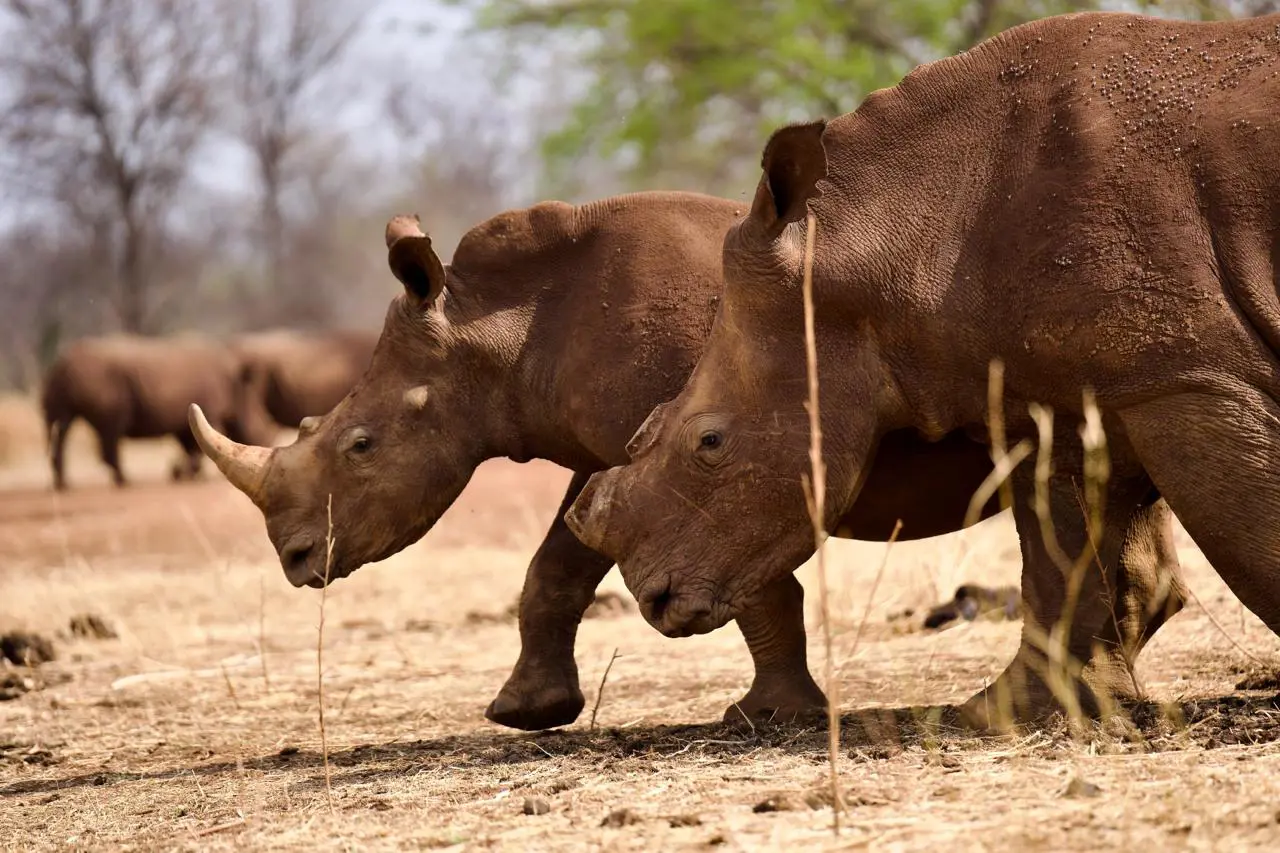
Lewitton claims 39 rhinos were poached from his reserve and another 60 vanished while he was in prison. Photo: Katlego Jiyane
At the same time, policy deepened the rift. Then-Environment Minister Barbara Creecy blocked any move towards legal trade and backed a report calling for private rhino breeding to be phased out.
That decision undercut conservationists who argue that South Africa’s rhino horn stockpile, estimated at nearly 75 tonnes, could be used to collapse prices and disrupt the poaching economy.
South Africa now stands at a crossroads. The stockpiles could save rhinos or serve as a pipeline for corruption. The unanswered question: are these policies protecting the animals, or protecting those who profit from their deaths?
We have approached the Limpopo police and Major General Scheepers for comment. He has yet to comment.
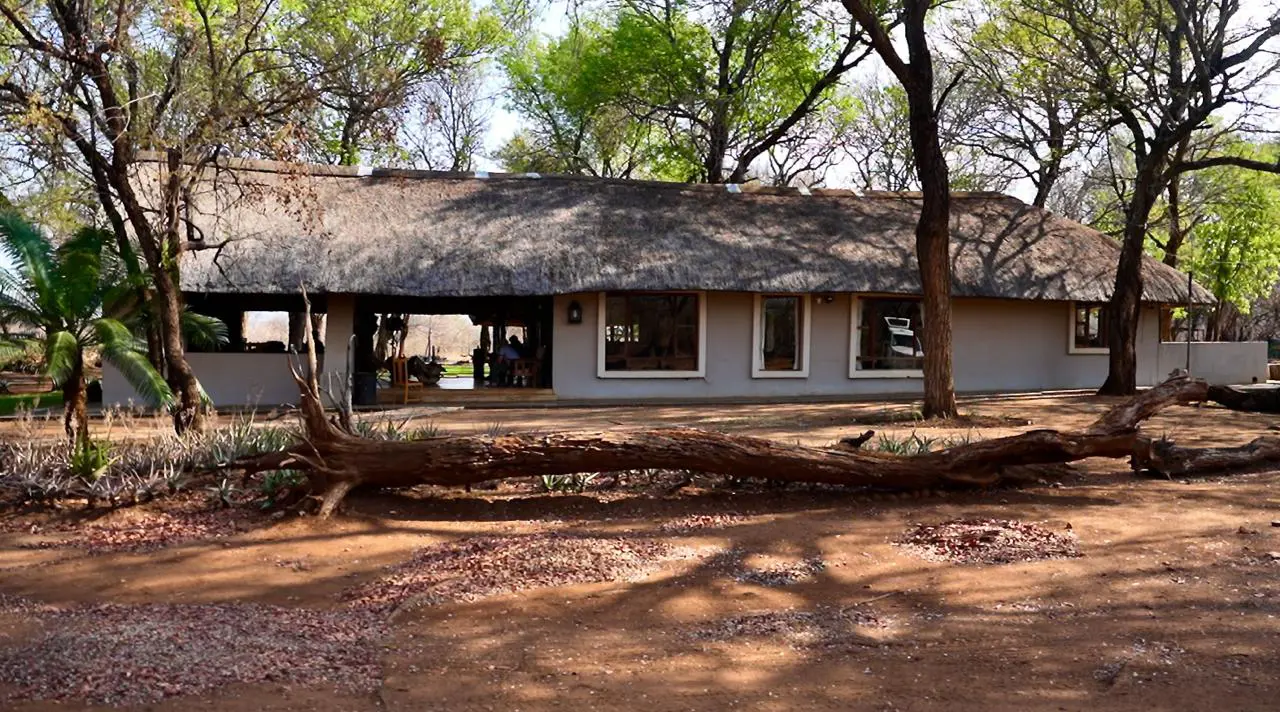
Key Facts: South Africa’s Rhino Horn Crisis
Global Trade: Rhino horn continues to be a high-value commodity on the black market, largely due to demand from Asian countries. While exact figures are hard to pin down, the trade is acknowledged as highly profitable.
Stockpiles: According to reports, South Africa's stockpile of rhino horn is significant. Official figures from 2019 indicate around 27.7 tonnes held by the government and approximately 22.5 tonnes in private hands. Recent totals are debated and lack full transparency.
Skukuza Mystery: There are allegations suggesting that a substantial portion of state-held horn may be missing, though these claims have not been verified.
Derek Lewitton Case: A rhino farmer from Limpopo faced charges that were later dropped due to insufficient evidence, although the case remains open to potential reinstatement. He is a well-known advocate for legalizing rhino horn trade and has publicly argued for policy change.
NPA Position: The charges against Lewitton were withdrawn, keeping the door openfor future legal action.
John Hume Arrest: John Hume, known for being the largest private rhino breeder, was arrested amid accusations of being involved in illegal rhino horn activities.
Policy Fight: Former Environment Minister Barbara Creecy was against reopening the rhino horn trade, advocating for maintaining the ban until significant anti-poaching measures, demand reduction, and robust legal frameworks are in place. The new Minister, Deon George, has pledged to uphold this policy, ensuring continuity in conservation strategies
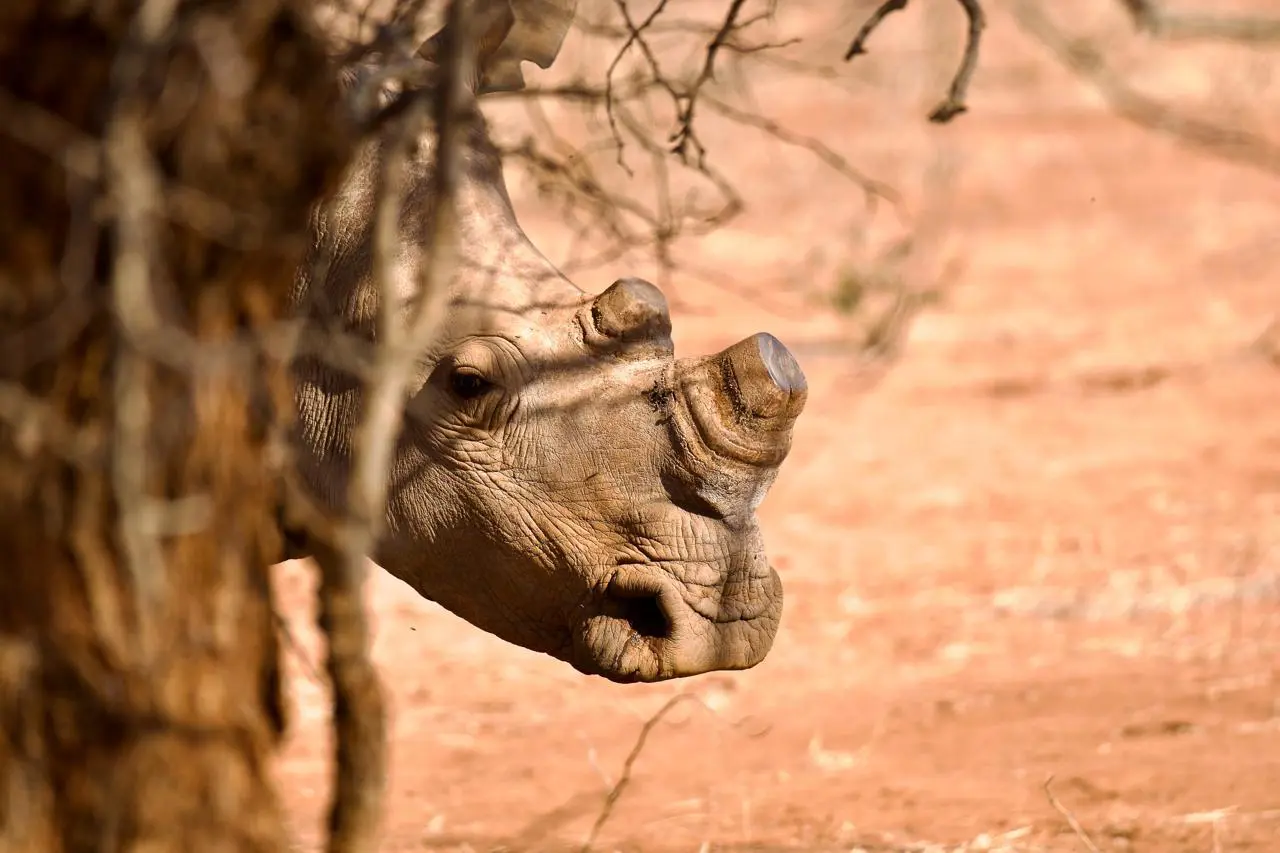
John Hume Responds
“I have nothing to hide. I’ve cooperated with investigators for years, and I categorically deny any involvement in illegal rhino horn trading.”
John Hume’s charges of leading an international trafficking syndicate accused of smuggling 964 rhino horns, valued at over R250 million (approx USD $14 million), through a fraudulent permit scheme, including counts of racketeering.
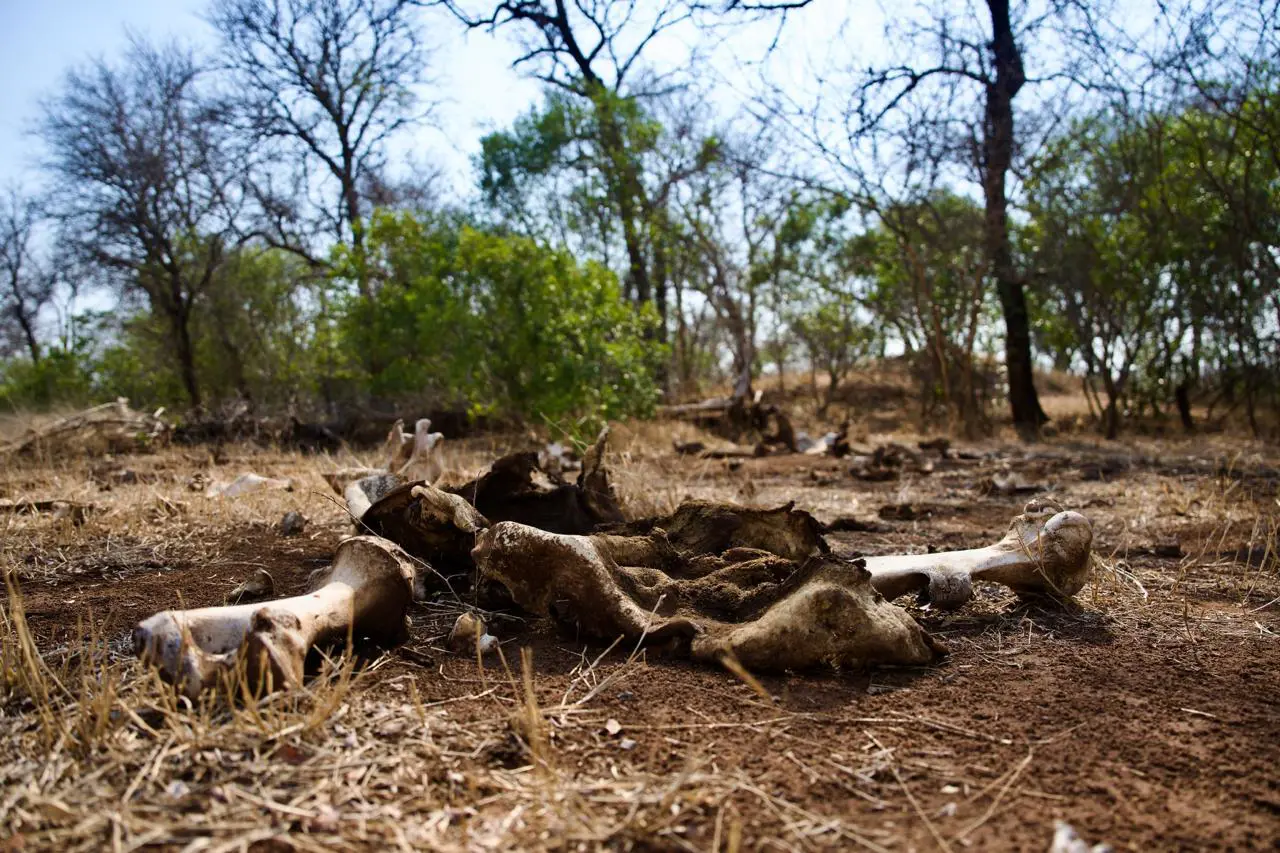
TIMELINE
March 2023
Former Minister Barbara Creecy withdraws new horn-trade rules
Legal uncertainty keeps 2017 framework in place
Sept 2023
• Rhino breeder John Hume sells his 2,000-strong herd to African Parks, ending his direct role in the debate.
8 Nov 2023
• Inquiry docket launched against Lewitton
22 Dec 2023
• Police raid Black Rock Rhino Reserve.
• Around 60 armed officers in balaclavas storm the property.
• Wife asked to confirm Derek is rhino poacher
• Wife and children endure a 19-hour standoff.
• Lewitton taken into custody.
Late Dec 2023 – Jan 2024
• Held 19 nights in Letsitele cells with up to 19 inmates in a 5×6m room.
• 27 Dec — first court appearance: state “not ready.”
• 3 Jan — state adds fresh charges, questions citizenship.
• 10 Jan — new magistrate grants bail.
Early 2024
• Investigating Officer Colonel Wahab allegedly pressures Lewitton’s wife to testify or face arrest.
Feb–Mar 2024
• Monthly hearings postponed. No docket or charge sheet produced.
April 2024
• Lewitton demands a full docket - major gaps revealed.
15 May 2024
• State delivers charge sheet - missing key evidence. Magistrate threatens sanctions.
12 Aug 2024
• Defence demands full disclosure before trial.
13 Aug 2024
• Trial begins - centred on fake guns, horns, and citizenship.
• Charges withdrawn in full.
2025 (ongoing)
• Debate intensifies over rhino horn stockpiles:
– 47.5 tonnes in private vaults
– 27.6 tonnes in state hands
Aug 2025
• Respected Rhino farmer John Hume arrested and charged with smuggling 964 rhino horns (US$14m) between 2017-2024.
• Faces 50+ charges including racketeering and theft.
• Denies wrongdoing; released on R100,000 bail.
Get the whole picture 💡
Take a look at the topic timeline for all related articles.







